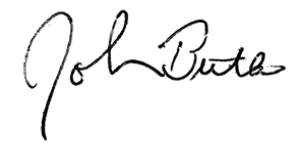It emerged last week that the government is seriously considering imposing price controls on basic foodstuffs. There has been immediate push-back from those who understand basic economics. Price controls invariably lead to shortages. Shortages of basic foodstuffs can lead to… You get the point. Bad idea.
But it is worth considering just how it is that any government of any modern, remotely free-market country would even propose such a policy. It would be a disaster. Milk, eggs, bread and other staple foods would gradually, perhaps even suddenly, disappear from the shelves.
More expensive foods not affected by the policy would of course still be generally available, so those with means would be able to keep their refrigerators stocked up with gourmet products. Not so for those living on tighter budgets.
Bizarrely, rationing would probably be less damaging to public nutrition and health. After all, some people probably eat rather more than they should. The UK is one of the most obese countries in the world, which no doubt places an enormous strain on limited NHS resources. Restricting caloric intake might provide some relief.
Rationing has a history in the UK too. During and following the Second World War, the UK rationed food. So there is a precedent. That said, the privations of rationing weren’t exactly popular, so perhaps today’s government thinks that, politically at least, rationing wouldn’t go over all that well.
I honestly don’t know what they’re thinking. Government folly knows no bounds it seems. But much as a petulant child learns the rules only by pushing the limits of behaviour, so governments sometimes learn lessons the hard way: at the ballot box.
From Socrates to Solzhenitsyn, there have been countless prominent commentators on government folly throughout history. One of the most eloquent was economist and Nobel laureate Friedrich Hayek.
Undeniably brilliant, Hayek was one of the first economists to propose a framework for understanding the business cycle. We take his theory for granted today, but his work on how profit-maximising businesses and economising households interacted, entirely rationally, yet in a way that led to natural cycles of activity, eventually netted him his Nobel prize.
His most famous work, The Road to Serfdom, was a warning that, while governments and central banks might desire to “manage” the business cycle, their attempts at doing so would almost invariably cause more harm than good. Indeed, Hayek was a prominent critic of nearly all forms of government economic intervention.
The unforeseen side effects or other harms caused by interventions, Hayek believed, would beget yet more interventions. Problem, fix, bigger problem, bigger fix… and so on, until there was little if anything left of what was once a dynamic, if imperfect, market-driven economy.
A gradual, creeping socialism, with ultimately disastrous economic consequences, could occur even amidst the best of intentions and absent corruption. But then we know with what the Road to Hell is paved…
Margaret Thatcher said that Hayek was her favourite economist. That was quite understandable given that she rose to power during a period of unprecedented peacetime intervention in the economy. The previous governments, Conservative and Labour, had tried all manner of meddling, with protracted stagflation being the result. Maggie understood her mandate as one of ripping up the interventionist rule book.
That the government of today is even considering imposing price controls is only understandable when you place it in context of their past interventions. Blame the Bank of England to some extent if you like, but ever since the Global Financial Crisis of 2008, successive UK governments have been following Hayek’s insidious dialectical script almost to the letter.
Indeed, there are few bright spots in the UK economy at present. Technically, there isn’t a recession, but productivity growth is anaemic. Per-capita growth is effectively zero and has been historically low for years.
Economists sometimes call this the “productivity puzzle”. Were Hayek still with us, he would have helped to explain it. High taxation, burdensome regulations and a generally elevated level of government intervention in the economy discourage investment in equipment, training, you name it. Less investment in physical and human capital eventually results in weaker productivity.
However, in a twist of fortune, there is one area where UK investment is set to boom, and that is North Sea energy production. Geologists have long known that the North Sea’s resources are far from being fully exploited. Drilling technology is also much better than it was during the first North Sea boom in the 1970s and 1980s.
If there is one thing that would help to bring general price inflation down, including food price inflation, it would be cheaper energy. Fertiliser, production, processing, transport… Ever since the introduction of mechanised agriculture during the Industrial Revolution, energy costs have been a primary input into food prices.
That the UK is blessed with substantial low-hanging fossil energy fruit is well known. When things get to the point where the government is considering imposing food price controls, desperation has clearly set in. It might be politically awkward given the current government’s green credentials, but I believe that we are about to embark on a huge detour on the Road to Net Zero.
I’ll take that over the Road to Serfdom any day, and I suspect a large part of the British public would too. As an investor, I’m also going to take advantage of the huge amount of investment I believe is heading towards the North Sea. Following years or drought, I expect a deluge. If you’re interested in learning about this and other energy opportunities, we will be sharing more on that in the coming weeks.
Until next time,

John Butler
Investment Director, Fortune & Freedom


